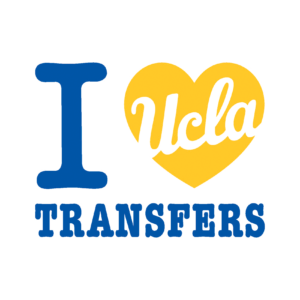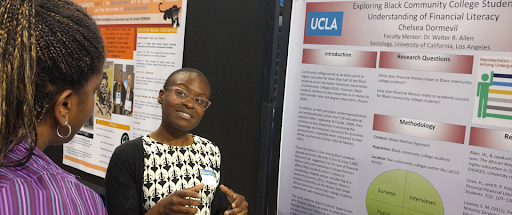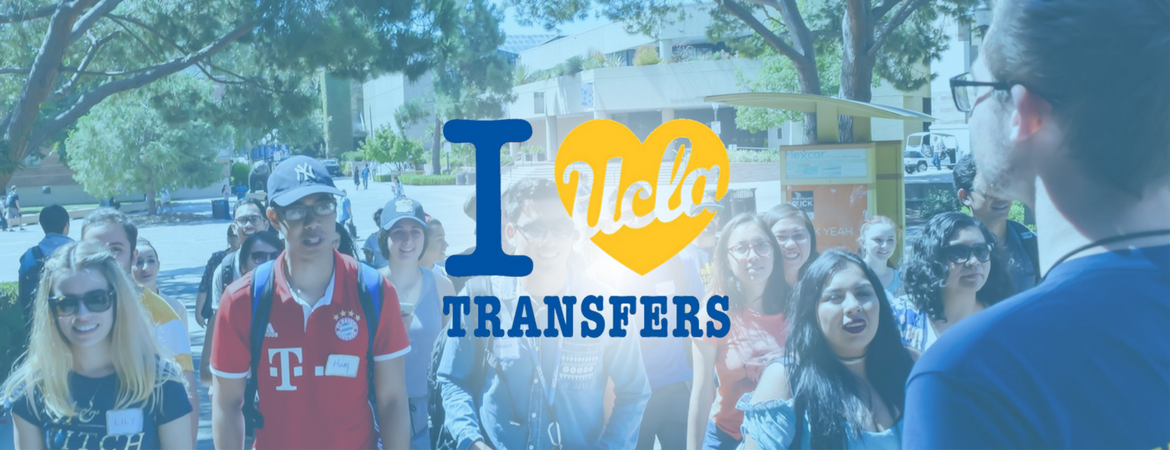I still remember the day when I opened my email and read the words: “There has been an update to your application.” After logging into my portal and reading the great news, I was hit with an immediate sense of sadness. I realized that I had been accepted to my dream school but would likely not get the traditional UCLA experience due to the spread of COVID-19.
Fast forward to fall quarter 2020, and sure enough, this presumption proved itself to be true. However, despite these unavoidable setbacks, I have still managed to explore UCLA by participating in many clubs relating to my intended occupation. As a result, I have made friends and truly feel that I am a part of the UCLA community; I feel that I am on the right path to achieving my goals despite the fact that I am at home, staring at a computer for the majority of the day.
It definitely wasn’t easy from the start, however.
Transfer students today make up a little over a fourth of UCLA’s student body simply due to how popular this path is becoming. For me personally, I chose this path in order to save money and to have a fighting chance of getting into my dream school. Another reason why I wanted to transfer was because most community colleges neither offer four-year undergraduate degrees nor offer opportunities pertaining to internships and research to the same degree that a prestigious university does.
What I did not realize, however, is that transfer students are slightly disadvantaged when it comes to involvement in these activities compared to their four-year counterparts due to not having established connections as well as not having an established GPA. Some recruiting firms may deliberately choose to overlook transfer student applications. On top of this, the major recruiting cycle occurs during the fall quarter of junior year, so UCLA transfers have to simultaneously apply to top firms and take impacted coursework for the first time.
Additionally, there is the disadvantage of not being adjusted to the quarter system and competitiveness in most UC courses; unlike community colleges, your grade in a UC course is typically based on your class rank relative to the ranks of other students.
When learning about this distinction in course rigor at UCLA, I decided it would be best to find a program that would connect me with students who are on the same path as me so that I would have a fair chance of competing in impacted courses. Thanks to Gerald Corporal and the UCLA Alumni Career Engagement Crew, I was selected to be a part of the Excellence in Economics Program (EXEC), which places a small cohort of 30 transfer economics students in the same lecture and discussions so they have the opportunity to study collaboratively and motivate one another. you and how the program helped you (did it prevent your GPA from being affected? change "one" to "your," I didn’t want to edit this just in case that wasn’t your actual experience, but it should be a minor change! :) ” class=”inline-comment collapsed”>
This program helped to circumvent the difficulties of taking an impacted course for the first time. Although I can’t speak for other majors, when you transfer over as a pre-economics student, you are immediately required to take two challenging courses which will determine your eligibility for the actual major; this is daunting for all students, let alone for students who have never taken a class at UCLA. Due to the support from my classmates as well as my instructors, I was able to get more practice that was tailored to my individual needs which consequently contributed to me acing the class! (I would specifically like to thank the graduate student instructors Fernanda Rojas and Victoria Barone for all of their efforts in making this program successful.) Therefore, I recommend all transfers regardless of their majors to look out for unique programs like this which connect them with other transfers as well as instructors who are willing to facilitate their successful integration into UCLA.

Photo via UCLA Alumni Career Engagement
Furthermore, during the EXEC program, I was able to participate in career workshops that explained how to stand out with recruiters as a transfer student. I learned that it essentially comes down to persistence in sending out applications and having a robust, well-crafted resume. In other words, be meticulous and do not rush the resume-building process. It is important that you highlight all of your relevant experiences and include quantitative info to really show recruiters the magnitude of your actions. This is called an achievement-based resume and is highly effective for catching the eye of hiring managers.
Moreover, I learned that work experience is the most appealing characteristic to hiring managers at top firms. Therefore, it is a good idea to accumulate internship experiences with smaller firms. These firms are less applied to and will provide adequate preparation for working in a large firm; as a UCLA student, you will also stand out from other applicants and have a good chance of getting the small-firm internship, assuming you have a robust resume, cover letter and interview skills.
In order to develop my interview skills, I joined the Bruin Transfers in Business Club; this club mainly pertains to finance, which is the field I want to enter after graduation. In these clubs, there are many opportunities for mock interviews where a peer mentor will ask a set of finance-related questions. After the mock interview, the peer mentor will give feedback about strengths and weaknesses so that you can improve before the real deal. you did specifically to continue your career path. not everyone reading this will be going into business.” class=”inline-comment collapsed”>
I recommend that everyone who wants to work in corporate join this club to bolster their interview capabilities. I am sure there are also more clubs like this for people with different goals to practice their interviewing skills, so definitely be on the lookout for these.
Academic research is also very important for many students, including transfers like myself. I contacted the economics department to see if there was a way that I could get involved but was told that I had to personally reach out to the economics ladder faculty to see if they were working on research and willing to delegate tasks. This was difficult, considering that I didn’t have experience taking any prior classes with these professors or doing research at UCLA. To move past this obstacle, I applied to a program called the Undergraduate Research Revealed Program, which aims to prepare students for upper-division research by teaching about the software that researchers use, how researchers draft their essays and the overall process for completing research projects. I was admitted into the program this following quarter and am currently learning about all of the necessary steps to start my research project, including how to narrow down and finalize my research question; this is arguably the hardest part of the research process. I also had the honor of conversing with accomplished graduate students and professors who are active researchers for the university, which helped to clarify uncertainties that I previously had.

Photo via UCLA Undergraduate Research Center —Humanities, Arts and Social Sciences
In conclusion, although we are transfers entering a prestigious and rigorous university during a pandemic and amidst the recruiting cycle, the opportunities for us to succeed are there; we just have to find them. I recommend all new transfers, regardless of major, to get involved in clubs and to stay in touch with their major department and the UCLA Career Center in order to see what opportunities are available.
In regard to applying for internships, I recommend drafting applications as soon as you accept your admission offer to UCLA; this way, when fall recruitment begins, you will be ready to go for applications. Do not get disheartened by rejection and keep applying to different companies, but also make sure your resume, cover letter and interview skills are up to par. As transfers, we cannot afford to make little mistakes in this competitive job market.
Lastly, if there is one somewhat positive aspect about this pandemic, it is that we have entered UCLA during an unprecedented time that is alien to everybody. Therefore, these feelings of impostor syndrome should be minimized. Believe me, Zoom calls are awkward whether you are a transfer or continuing student. So put yourself out there, and don’t let others tell you that you cannot succeed.

